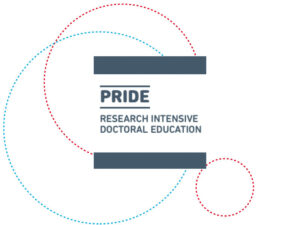The Luxembourg National Research Fund (FNR) is going to fund five new Doctoral Trainings Units (DTU) through PRIDE Grants. These grants will support the research work of 61 PhD candidates, some of whom will join the LCSB. The centre is participating in two DTUs focusing on interdisciplinary research combining biology and physics on the one hand and immunology, oncology and neurology on the other.
Active Phenomena Across Scales in Biological Systems
The ACTIVE DTU will combine expertise in physics and biology, to quantitatively reveal the mechanisms at work in living systems. The project will bring together nine international research groups in biology, physics and engineering at the University of Luxembourg. Three of these groups are based at the LCSB: The Integrative Cell Signalling group led by Dr Alexander Skupin, the Enzymology & Metabolism group led by Dr Carole Linster, and the Systems Control group headed by Prof Jorge Goncalves.
Coordinated by Prof. Massimiliano Esposito from the Department of Physics and Material Science, the initiative will train 12 doctoral candidates in the emerging field of active systems (systems that continuously consume energy) to allow new perspectives on the multiscale organisation of life. Five of them will integrate a LCSB research group.
PhD candidates will have the unique opportunity to work in a multidisciplinary and collaborative environment. Theory will be combined with analytical and computational approaches, as well as cutting-edge life science experiments at molecular, cellular and population levels.
Integrating immune strategies for Translational Research
The second DTU, Integrating immune strategies for Translational Research in Oncology and Neurology or i2TRON for short, is led by Prof. Rejko Krüger and the Luxembourg Institute of Health, in collaboration with the Centre Hospitalier de Luxembourg and the Laboratoire National de Santé. It will train 16 PhD candidates in three areas of translational research.
Inflammation represents a common hallmark shared across different diseases such as auto-immune disease, cancer and neurodegeneration. i2TRON will focus on some of these diseases and study aberrant immune mechanisms as a central theme that rolls out into inflammation, immuno-oncology, and neuroimmunology. The DTU will leverage the considerable fundamental and clinical research expertise already existing in Luxembourg to train the next generation of translational scientists, with the aim to understand better the mechanisms behind these diseases. Such insights could lead to discoveries of new biomarkers and therapeutic targets. It would facilitate translation into novel diagnostic and therapeutic strategies to improve patient care.
Five research groups of the LCSB are involved in i2TRON: The Molecular & Functional Neurobiology group of Associate Prof. Anne Grünewald, the Developmental and Cellular Biology group led by Prof. Jens Schwamborn, the Bioinformatics Core led by Prof. Reinhard Schneider, the Eco-Systems Biology group of Prof. Paul Wilmes, as well as the Interventional Neuroscience group headed by Dr Frank Hertel.
—
More information about PRIDE:
PRIDE is the FNR’s main programme for funding doctoral research in Luxembourg. It supports the development of critical mass in key research areas by attracting excellent PhD candidates to Luxembourg and offering high quality research training. Under this programme, PhD grants are awarded to researchers cooperating on a coherent research and training programme.
